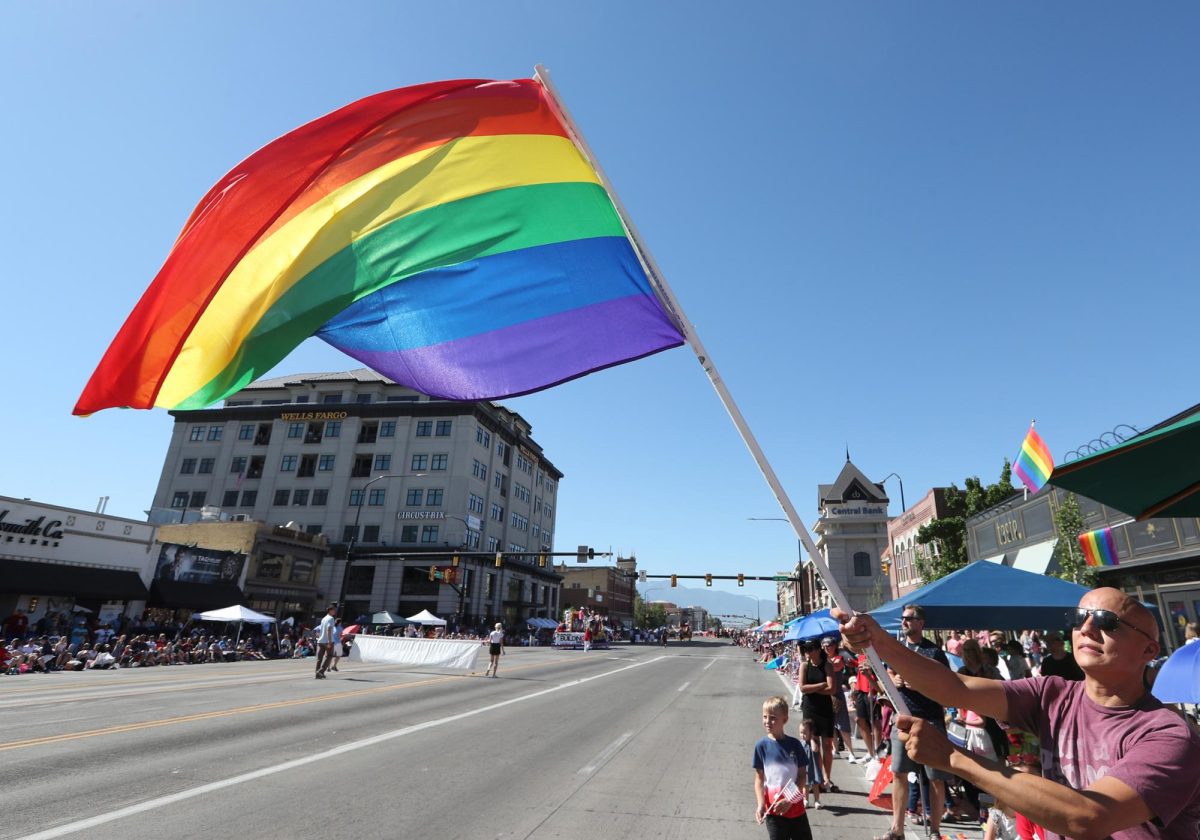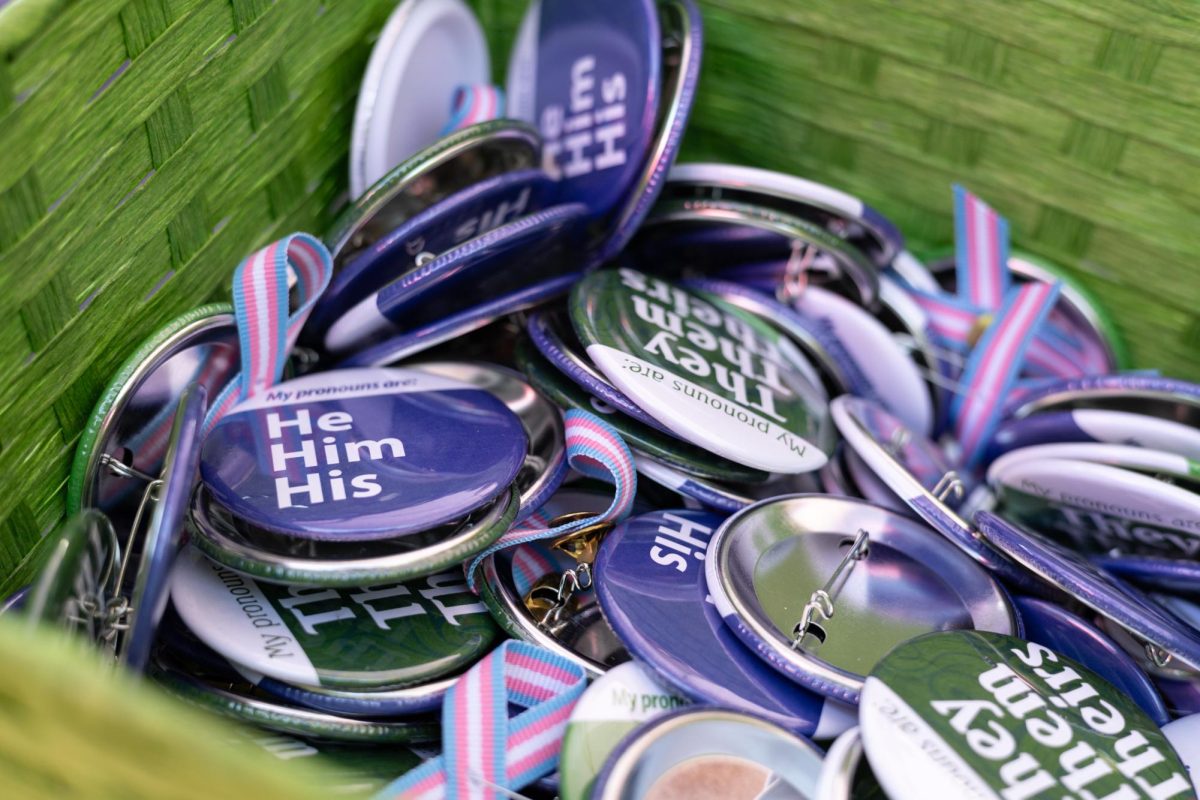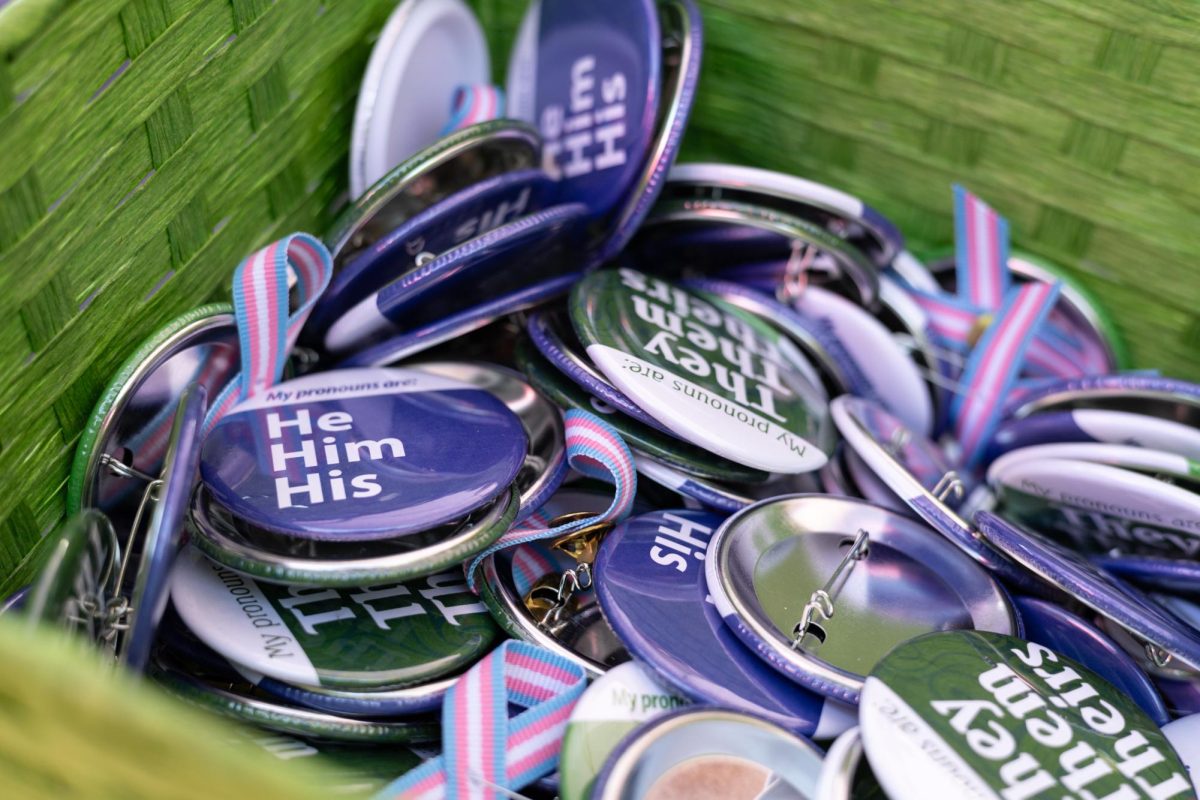An online petition went live on Nov. 12 advocating for an LGBTQ senate position on Weber State University’s Student Association. The petition was posted on social media and was sent to professors to share with their students.

The Senate bill in question had to do with the changing of language in the WSUSA bylaws that would allow for an LBGTQ senate position.
Title II Section A of the bylaws states, “In accordance with the WSUSA Constitution, representation shall be provided for any student recognized as a member of an officially recognized constituency.”
Current senate positions are based on information WSU can track through the Banner system, such as race, ethnicity, declared major or minor, non-traditional status, on-campus housing status and other trackable information.
Sponsor of the bill Kelli Denos, Davis Campus Senator, suggested an amendment to Title II Section A in the WSUSA bylaws adding a 23rd point that would read “All of the students who self-identify as LGBTQ+ and/or allies thereof” as students who shall have representation in the senate.
Denos said that with the racism and microaggressions going on this past year on campus with Black, BIPOC and LGBTQ students there needed to be change.
“It was just, all together, major things that needed voices on campus, and we needed to have representation for those students,” Denos said.

The senate vote on the bill was unanimous, with all members present at the meeting approving the change in language in the bylaws.
Additionally, through a ballot vote and a minimum requirement of 15 votes in favor, the present senators voted in favor of the addition of an LGBTQ senate position, meaning it will be passed to the university Supreme Court to be accepted and put into effect as soon as possible.
If passed by the Supreme Court, the new position will be filled by January, and there will be a position open to be voted on for the 2022-23 school year alongside existing Senate positions.
“Weber State is not a safe place for queer and trans people and, honestly, the goal of adding the senator is to change that,” Hannah Phelps, president of WSU’s Gender and Sexuality Alliance, said.
They also said the addition of the new position will give more access to resources for LGBTQ students than they have had in the past.
“I and the other members of the GSA, especially GSA leadership, do a lot of work for advocacy things on campus, but our voice only goes so far,” Phelps said.
The final decision from the Supreme Court will be known by Nov. 22.
By the time the petition closed on Nov. 15, right before the 2:30 p.m. Senate meeting, there were 314 signatures. The minimum requirement to be presented to the Senate is 150.

One hundred fifty of the signatures were from students who identify as LGBTQ, while the rest were either allies or chose not to state their orientation. They were verified as WSU students, as only individuals logged in with university email addresses were allowed to sign the online petition. Signers were also required to provide their student ID numbers.
Additionally, there was no rigging, as each account was allowed one vote.
In 2016, a similar effort was made to add a senate position for members of the LGBTQ community, but it was soon shut down by the Supreme Court as it was deemed unconstitutional due to the inability to legally track LGBTQ students in Banner. As previously reported by The Signpost, it was recommended that it be reworded as it was unclear what the position would include or not.
Jayson Stokes, coordinator of the LGBT Resource Center, said the difference between 2016 and 2021 is the change of laws in Utah that protect individuals of the LGBTQ community, such as an anti-discrimination law that was accepted in 2020.
There was another bill that was brought to be voted on regarding Banner, sponsored by Kennedy Jones, College of Arts & Humanities senator, aiming for the addition of reporting preferred pronouns and sexual orientation on a voluntary basis. It would be used to ensure correct names and pronouns are used in the classroom along with data collection for resource purposes.
Information tracked on Banner is considered public information. Due to this, closeted students, or students who have not outwardly stated their sexuality or gender identity, may be at risk of having this information outed on public record when they do not wish to. However, by making the information optional to report, it would prevent such events from happening.

Phelps stated that WSU has a difficult name change process, highlighting stories their friends have told them about their attempts in reaching out to the Registrar’s office.
“A friend of mine said that they wanted to get their name changed legally, for Weber, different times and all three different times they were told that they needed different things three different times,” Phelps said. “The Registrar’s office is just not educated on what the actual policy is.”
Requirements for name changes can be found on WSU’s Records Office page.
The senate’s vote on this bill was also unanimous, with all present members agreeing on the addition for voluntary LGBTQ identification on Banner.



















